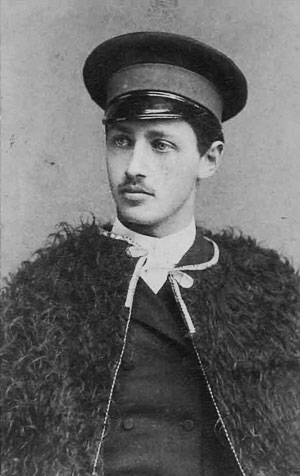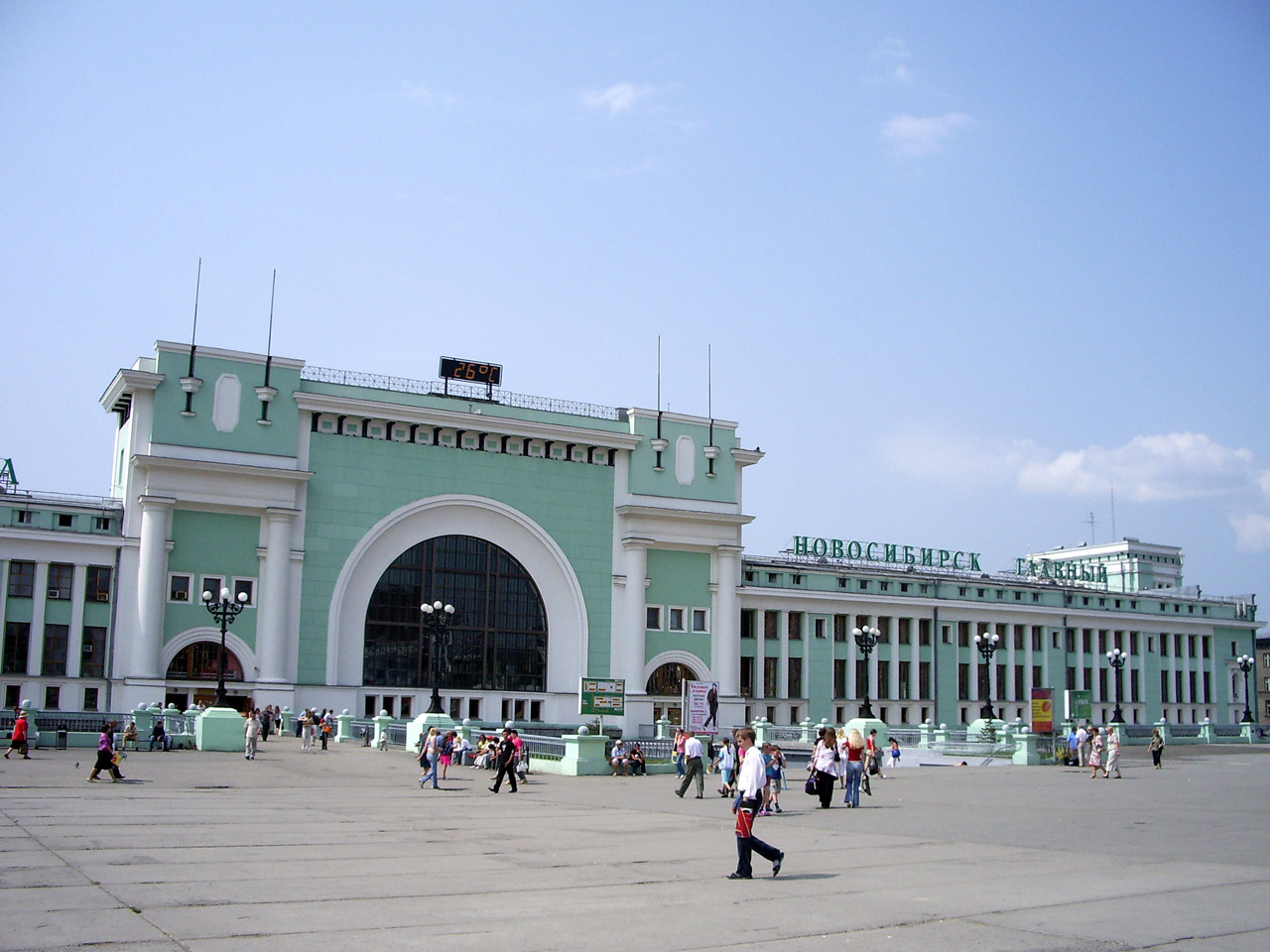|
Mir Bozhiy
''Mir Bozhiy'' (God's World, Мир божий) was a Russian monthly magazine published in Saint Petersburg in 1892–1906. It was edited first by Viktor Ostrogorsky (1892–1901), then by Fyodor Batyushkov (1902–1906). In July 1906 ''Mir Bozhiy'' was closed by censors. The publisher of the magazine was Alexandra Davydova, mother-in-law of Alexander Kuprin. History The publication's original intention was to promote self-education by popularizing science and history. By mid-1890, due largely to Angel Bogdanovich (who instigated on the journal's pages a well-publicized polemic with narodniks), it became more politically aware. Attracting Marxist (mainly the so-called Legal Marxists: Pyotr Struve, Mikhail Tugan-Baranovsky, Nikolai Berdyaev and others) authors and readership, it became popular among liberal and radical Russian intelligentsia. The literary criticism section was edited by Bogdanovich, Vladimir Kranikhfeld and Nevedomsky. Among the magazine's regular contributors w ... [...More Info...] [...Related Items...] OR: [Wikipedia] [Google] [Baidu] |
Saint Petersburg
Saint Petersburg, formerly known as Petrograd and later Leningrad, is the List of cities and towns in Russia by population, second-largest city in Russia after Moscow. It is situated on the Neva, River Neva, at the head of the Gulf of Finland on the Baltic Sea. The city had a population of 5,601,911 residents as of 2021, with more than 6.4 million people living in the Saint Petersburg metropolitan area, metropolitan area. Saint Petersburg is the List of European cities by population within city limits, fourth-most populous city in Europe, the List of cities and towns around the Baltic Sea, most populous city on the Baltic Sea, and the world's List of northernmost items#Cities and settlements, northernmost city of more than 1 million residents. As the former capital of the Russian Empire, and a Ports of the Baltic Sea, historically strategic port, it is governed as a Federal cities of Russia, federal city. The city was founded by Tsar Peter the Great on 27 May 1703 on the s ... [...More Info...] [...Related Items...] OR: [Wikipedia] [Google] [Baidu] |
Ivan Bunin
Ivan Alekseyevich Bunin ( or ; rus, Ива́н Алексе́евич Бу́нин, p=ɪˈvan ɐlʲɪkˈsʲejɪvʲɪdʑ ˈbunʲɪn, a=Ivan Alyeksyeyevich Bunin.ru.vorb.oga; – 8 November 1953)"Ivan Bunin" ''''. was the first Russian writer awarded the , in . He was noted for the strict artistry with which he carried on the cl ... [...More Info...] [...Related Items...] OR: [Wikipedia] [Google] [Baidu] |
Defunct Magazines Published In Saint Petersburg
{{Disambiguation ...
Defunct may refer to: * ''Defunct'' (video game), 2014 * Zombie process or defunct process, in Unix-like operating systems See also * * :Former entities * End-of-life product * Obsolescence Obsolescence is the process of becoming antiquated, out of date, old-fashioned, no longer in general use, or no longer useful, or the condition of being in such a state. When used in a biological sense, it means imperfect or rudimentary when comp ... [...More Info...] [...Related Items...] OR: [Wikipedia] [Google] [Baidu] |
Aleksandr Kuprin
Aleksandr Ivanovich Kuprin (; – 25 August 1938) was a Russian writer best known for his novels ''The Duel'' (1905)Kuprin scholar Nicholas Luker, in his biography ''Alexander Kuprin'', calls ''The Duel'' his "greatest masterpiece" (chapter IV) and likewise literary critic Martin Seymour-Smith calls ''The Duel'' "his finest novel" ('' The Guide to Modern World Literature'', p. 1051) and '' Yama: The Pit'' (1915), as well as ''Moloch'' (1896), '' Olesya'' (1898), " Captain Ribnikov" (1906), "Emerald" (1907), and '' The Garnet Bracelet'' (1911) – the latter made into a 1965 movie. Early life Aleksandr Kuprin was born 1870 in Narovchat, Penza, to Ivan Ivanovich Kuprin, a government official in Penza Governorate. and Liubov Alekseyevna Kuprina, Kulunchakova. His father was Russian, his mother belonged to a noble Volga Tatar family who had lost most of their wealth during the 19th century. Aleksandr had two older sisters, Sofia (1861–1922) and Zinaida (1863–1934). ... [...More Info...] [...Related Items...] OR: [Wikipedia] [Google] [Baidu] |
1906 Disestablishments In The Russian Empire
Nineteen or 19 may refer to: * 19 (number) * One of the years 19 BC, AD 19, 1919, 2019 Films * ''19'' (film), a 2001 Japanese film * ''Nineteen'' (1987 film), a 1987 science fiction film * '' 19-Nineteen'', a 2009 South Korean film * '' Diciannove'', a 2024 Italian drama film informally referred to as "Nineteen" in some sources Science * Potassium, an alkali metal * 19 Fortuna, an asteroid Music * 19 (band), a Japanese pop music duo Albums * ''19'' (Adele album), 2008 * ''19'', a 2003 album by Alsou * ''19'', a 2006 album by Evan Yo * ''19'', a 2018 album by MHD * ''19'', one half of the double album ''63/19'' by Kool A.D. * ''Number Nineteen'', a 1971 album by American jazz pianist Mal Waldron * ''XIX'' (EP), a 2019 EP by 1the9 Songs * "19" (song), a 1985 song by British musician Paul Hardcastle * "Stone in Focus", officially "#19", a composition by Aphex Twin * "Nineteen", a song from the 1992 album ''Refugee'' by Bad4Good * "Nineteen", a song from the 2001 ... [...More Info...] [...Related Items...] OR: [Wikipedia] [Google] [Baidu] |
1892 Establishments In The Russian Empire
Year 189 ( CLXXXIX) was a common year starting on Wednesday of the Julian calendar. At the time, it was known as the Year of the Consulship of Silanus and Silanus (or, less frequently, year 942 ''Ab urbe condita''). The denomination 189 for this year has been used since the early medieval period, when the Anno Domini calendar era became the prevalent method in Europe for naming years. Events By place Roman Empire * Plague (possibly smallpox) kills as many as 2,000 people per day in Rome. Farmers are unable to harvest their crops, and food shortages bring riots in the city. China * Liu Bian succeeds Emperor Ling, as Chinese emperor of the Han dynasty. * Dong Zhuo has Liu Bian deposed, and installs Emperor Xian as emperor. * Two thousand eunuchs in the palace are slaughtered in a violent purge in Luoyang, the capital of Han. By topic Arts and sciences * Galen publishes his ''"Treatise on the various temperaments"'' (aka ''On the Elements According to Hippocrate ... [...More Info...] [...Related Items...] OR: [Wikipedia] [Google] [Baidu] |
Nestor Kotlyarevsky
Nestor Alexandrovich Kotlyarevsky (Не′стор Алекса′ндрович Котляре′вский February 2, 1863, Moscow, Russian Empire, - May 12, 1925, Leningrad, USSR) was a Russian author, publicist, literary critic and historian. A high-profile scholar and a Russian academy honorary member (since 1906), Kotlyarevsky taught the history of literature at Moscow University Moscow State University (MSU), officially M. V. Lomonosov Moscow State University,. is a public research university in Moscow, Russia. The university includes 15 research institutes, 43 faculties, more than 300 departments, and six branches. Al ..., a series of his lectures served later as a foundation for one of his best known works, ''The Nineteenth Century'' (1921). Kotlyarevsky also went down in history as the first director of the Pushkin House (1910). References {{DEFAULTSORT:Kotlyarevsky, Nestor Alexandrovich 1863 births Writers from Moscow Literary critics from the Russian Empir ... [...More Info...] [...Related Items...] OR: [Wikipedia] [Google] [Baidu] |
Evgeny Anichkov
Evgeny Vasilyevich Anichkov (, 14 January 1866, Borovichi, Novgorod Governorate, Russian Empire — 22 October 1937, Belgrade, Yugoslavia) was a Russian Literature, Russian literary critic and historian who specialised in the Slavic folklore and mythology, as well as their relation to and use in the Russian literature. His 1905 book ''The Ritual Spring Song in the West and With the Slavic Peoples'' (Весенняя обрядовая песня на Западе и у славян)''Аничков Е. В.'' Весенняя обрядовая песня на Западе и у славян. Ч. 1. От обряда к песне. СПб., 1903. XXX, 392 с. // Ч. 2. От песни к поэзии. СПб., 1905, XII, 404 с. won him the Lomonosov Prize in 1907. His magnum opus ''Paganism and Ancient Rus'' (Язычество и Древняя Русь) came out in 1914. Anichkov's numerous critical essays (on Maxim Gorky, Leonid Andreyev, Valery Bryusov, Konstantin Balmont and F ... [...More Info...] [...Related Items...] OR: [Wikipedia] [Google] [Baidu] |
Yevgeny Tarle
Yevgeny Viktorovich Tarle (; – 6 January 1955) was a Soviet historian, Marxist scholar, and academician of the Russian Academy of Sciences, who studied and published on topics such as the Napoleonic invasion of Russia and the Crimean War. Much of his work dealt with themes of Marxist historiography, imperialism, and Russian nationalism. Tarle spent much of his professional life disagreeing with state authorities over his scholarship and was also a founder of the Moscow State Institute of International Relations (Russia's diplomatic university). Life Early life and education Yevgeny Tarle born Grigory Tarle in 1874 in Kyiv, Russia (modern-day Ukraine) into a Jewish family. He changed his name as a young man, before converting to the Orthodox Church. His father, Viktor Grigorievich Tarle, belonged to the Merchantry Social Estate and ran a shop in Kyiv. Viktor also translated books from Russian to German, including the works of Fyodor Dostoyevsky. Viktor and his wife Ro ... [...More Info...] [...Related Items...] OR: [Wikipedia] [Google] [Baidu] |
Pavel Milyukov
Pavel Nikolayevich Milyukov ( rus, Па́вел Никола́евич Милюко́в, p=mʲɪlʲʊˈkof; 31 March 1943) was a Russian historian and liberal politician. Milyukov was the founder, leader, and the most prominent member of the Constitutional Democratic party (known as the ''Kadets''). He changed his view on the monarchy between 1905 and 1917. In the Russian Provisional Government, he served as Foreign Minister, working to prevent Russia's exit from the First World War. Pre-revolutionary career Pavel was born in Moscow in the upper-class family of Nikolai Pavlovich Milyukov, a professor in architecture who taught at the Moscow School of Painting, Sculpture and Architecture. Milyukov was a member of the House of Milukoff. Milyukov studied history and philology at the Moscow University, where he was influenced by Herbert Spencer, Auguste Comte, and Karl Marx. His teachers were Vasily Klyuchevsky and Paul Vinogradoff. In summer 1877 he briefly took part in R ... [...More Info...] [...Related Items...] OR: [Wikipedia] [Google] [Baidu] |
Nikolai Garin-Mikhailovsky
Nikolai Georgievich Mikhailovsky (Russian: Никола́й Гео́ргиевич Михайло́вский, ) was a writer and essayist from the Russian Empire. He was also a locating engineer and railroad constructor. As a writer, he published under the pseudonym N. Garin (Russian: Н. Га́рин), and since his death has been commonly referred to as the hyphenated Garin-Mikhailovsky. Career As an engineer Garin-Mikhailovsky was involved in construction of the Laspi Pass highway and the Trans-Siberian Railway. In 1891 he headed the surveying party that chose the place for building a railroad bridge over River Ob for the Trans-Siberian Railway. It was Garin-Mikhailovsky who rejected the option of raising a bridge in Tomsk. This decision later resulted in the foundation of Novosibirsk and played a vital role in development of the city. He came down in the history of Russian literature as the author of the story ''Tyoma's Childhood'' (1892) and the short story ''Several Ye ... [...More Info...] [...Related Items...] OR: [Wikipedia] [Google] [Baidu] |




